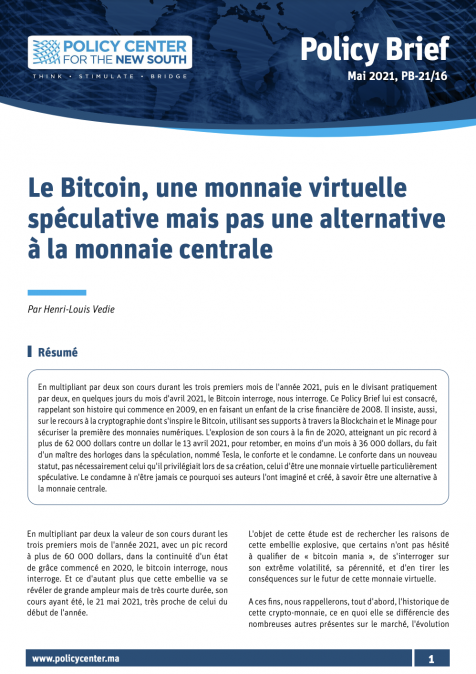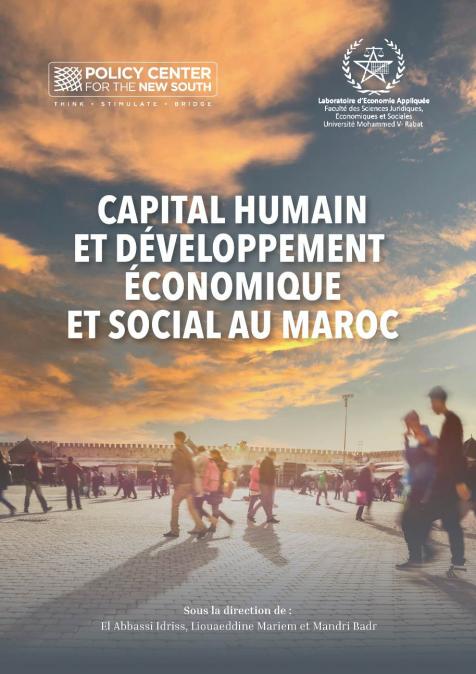Publications /
Policy Brief
En multipliant par deux son cours durant les trois premiers mois de l'année 2021, puis en le divisant pratiquement par deux, en quelques jours du mois d'avril 2021, le Bitcoin interroge, nous interroge. Ce Policy Brief lui est consacré, rappelant son histoire qui commence en 2009, en en faisant un enfant de la crise financière de 2008. Il insiste, aussi, sur le recours à la cryptographie dont s'inspire le Bitcoin, utilisant ses supports à travers la Blockchain et le Minage pour sécuriser la première des monnaies numériques. L'explosion de son cours à la fin de 2020, atteignant un pic record à plus de 62 000 dollars contre un dollar le 13 avril 2021, pour retomber, en moins d'un mois à 36 000 dollars, du fait d'un maître des horloges dans la spéculation, nommé Tesla, le conforte et le condamne. Le conforte dans un nouveau statut, pas nécessairement celui qu'il privilégiait lors de sa création, celui d'être une monnaie virtuelle particulièrement spéculative. Le condamne à n'être jamais ce pourquoi ses auteurs l'ont imaginé et créé, à savoir être une alternative à la monnaie centrale.







